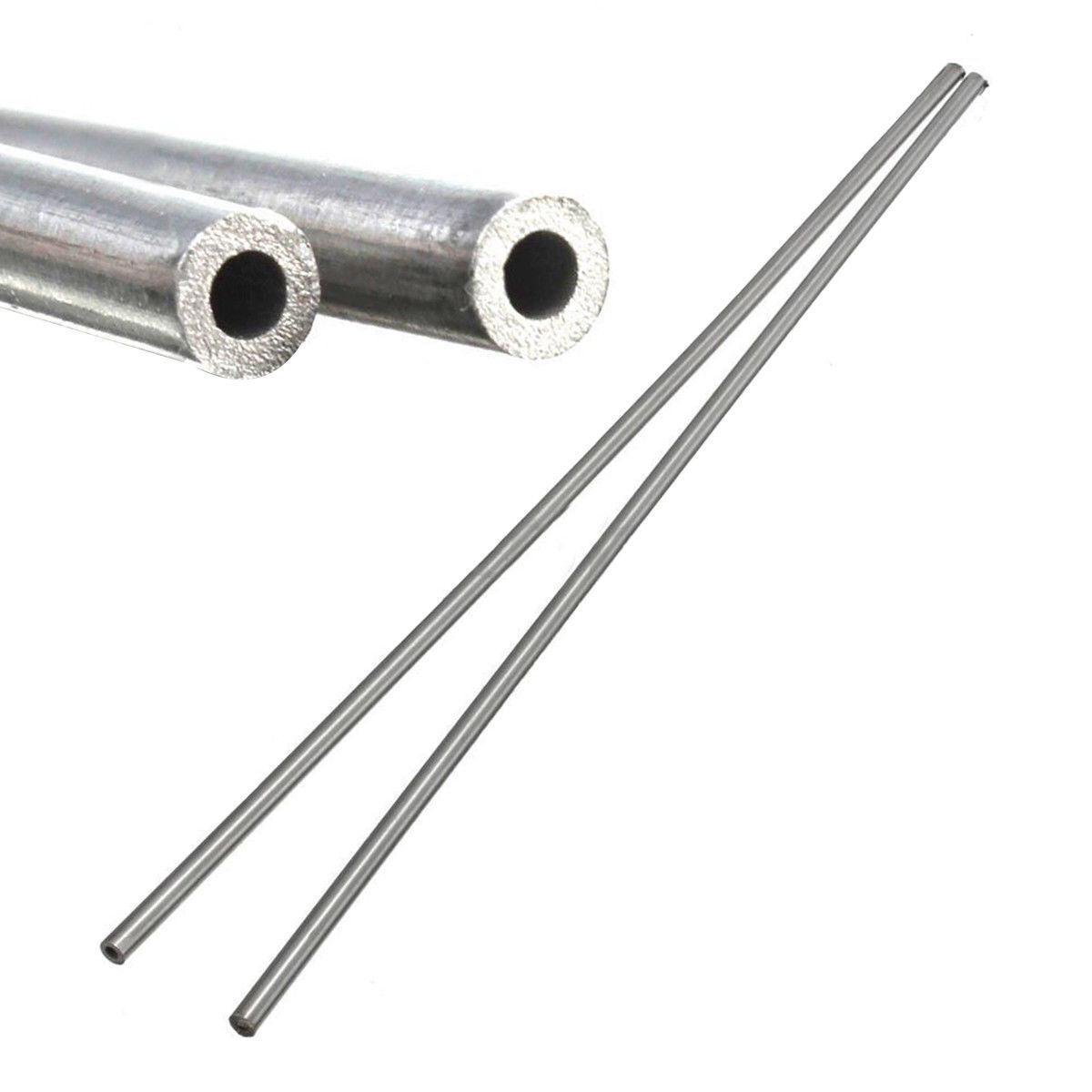
Stainless steel capillary tubes are precision-engineered components widely recognized for their strength, durability, and versatility. These tubes play a crucial role in numerous industrial and commercial applications, where precision and quality are paramount. This blog dives deep into the world of stainless steel capillary tubes, exploring their features, benefits, applications, and much more.
What Are Stainless Steel Capillary Tubes?
A stainless steel capillary tube is a small-diameter, thin-walled tube made from stainless steel. These tubes are specifically designed to meet high precision and corrosion resistance requirements. With their exceptional mechanical properties and compact size, they are indispensable in industries like healthcare, aerospace, automotive, and electronics.
Key Features of Stainless Steel Capillary Tubes
-
High Precision: Stainless steel capillary tubes are manufactured with tight tolerances, ensuring precise measurements and performance.
-
Corrosion Resistance: Made from high-grade stainless steel, these tubes withstand harsh environmental conditions, making them ideal for long-term applications.
-
Strength and Durability: Despite their small size, capillary tubes exhibit exceptional tensile strength and durability.
-
Versatility: Available in various sizes, thicknesses, and lengths to suit diverse industry needs.
-
Non-reactive: Stainless steel is non-reactive to most chemicals, ensuring compatibility with sensitive applications.
Benefits of Using Stainless Steel Capillary Tubes
1. Enhanced Durability
Stainless steel capillary tubes are built to last. They resist wear, tear, and environmental factors such as corrosion and extreme temperatures. This durability ensures reliability and reduces maintenance costs over time.
2. High Precision for Critical Applications
Their precision manufacturing allows for exact measurements and fluid transfer, which is vital in industries like healthcare and electronics. The accuracy ensures efficient and error-free operation.
3. Cost-Effective
While stainless steel capillary tubes may have a higher upfront cost, their longevity and minimal maintenance requirements make them a cost-effective solution in the long run.
4. Eco-Friendly
Stainless steel is 100% recyclable, making capillary tubes an environmentally responsible choice.
5. Versatility Across Industries
From medical instruments to oil and gas pipelines, stainless steel capillary tubes are highly adaptable, serving a wide range of applications.
Applications of Stainless Steel Capillary Tubes
1. Medical and Healthcare
In the medical field, stainless steel capillary tubes are used in hypodermic needles, catheters, and surgical instruments. Their biocompatibility and corrosion resistance make them an ideal choice.
2. Aerospace and Automotive
The aerospace and automotive industries rely on these tubes for hydraulic and fuel systems due to their ability to withstand high pressures and temperatures.
3. Oil and Gas
In the oil and gas sector, capillary tubes are used for pressure and temperature control systems. Their durability and corrosion resistance ensure efficiency and safety in harsh environments.
4. Electronics and Semiconductors
In electronics, these tubes are used in precise fluid delivery systems and as protective casings for sensitive components.
5. Chemical Processing
The chemical industry uses stainless steel capillary tubes for transferring reactive and non-reactive fluids without contamination.
Types of Stainless Steel Capillary Tubes
Stainless steel capillary tubes are classified based on:
-
Material Grade: Common grades include 304, 316, and 321 stainless steel. Each grade offers unique properties for different applications.
-
Size and Dimensions: Available in varying diameters and wall thicknesses to meet specific requirements.
-
Surface Finish: Polished or unpolished finishes depending on the application.
-
Seamless vs. Welded: Seamless tubes offer higher strength, while welded tubes are more cost-effective.
How to Select the Right Stainless Steel Capillary Tube
When choosing a stainless steel capillary tube, consider the following factors:
-
Application Requirements: Determine the tube’s purpose, whether it’s for fluid transfer, structural support, or protection.
-
Material Grade: Select a grade that meets the environmental and operational conditions of your application.
-
Size and Dimensions: Ensure the tube’s diameter and wall thickness align with your needs.
-
Operating Conditions: Consider factors like pressure, temperature, and chemical exposure.
-
Compliance Standards: Ensure the tubes meet industry standards such as ASTM or ISO certifications.
Maintenance and Care Tips for Stainless Steel Capillary Tubes
Proper maintenance ensures the longevity and optimal performance of stainless steel capillary tubes:
-
Regular Cleaning: Use non-abrasive cleaning agents to remove debris and prevent buildup.
-
Inspect for Damage: Periodically check for cracks, corrosion, or other signs of wear.
-
Avoid Overloading: Ensure the tubes operate within their pressure and temperature limits.
-
Proper Storage: Store tubes in a dry, controlled environment to prevent corrosion.
Why Choose Stainless Steel Capillary Tubes?
Stainless steel capillary tubes stand out due to their unmatched combination of durability, precision, and versatility. Whether in a high-tech laboratory or a rugged industrial setting, these tubes perform reliably, ensuring safety and efficiency. Their adaptability to a wide range of applications makes them an invaluable component in modern engineering and manufacturing.
Conclusion
Stainless steel capillary tubes are indispensable in today’s industrial and commercial landscape. Their precision, durability, and versatility make them a top choice for various applications. By understanding their features, benefits, and uses, you can make informed decisions about integrating these tubes into your projects. Whether you’re in the medical, aerospace, or oil and gas industry, stainless steel capillary tubes provide a reliable and efficient solution.






Leave a Reply